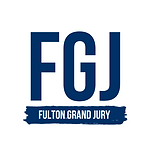Trump Cannot Argue He Is Being Singled Out for Campaign Violations
- FULTON COUNTY GRAND JURY
- Apr 6, 2023
- 3 min read
Updated: Oct 18, 2023
Trump’s case is not unusual; Trump is the first indicted former President, but New York courts routinely prosecute campaign finance violations and financial crimes—the very crimes Trump is charged with.
The unsealed indictment report and accompanying statement of facts show ample evidence to charge Donald Trump with creating false financial records.
This article is an adapted summary of the New York Times editorial “We Finally Know the Case Against Trump, and It Is Strong” written by Karen Friedman Agnifilo and Norman Eisen.
Legal Precedents for Trump’s Indictment
Trump’s behavior is not unique. Other candidates have attempted to get around the disclosure and dollar limit requirements of campaign finance regulations and then falsified records to hide their actions. Grand juries have indicted these politicians, who then were convicted.

The Manhattan District Attorney’s Office is located in the world’s financial capital and regularly prosecutes people indicted for creating false documentation to cover up campaign finance violations. Big cases involving powerful, high-profile individuals have been handled by the office for decades.
Since Manhattan D.A. Alvin Bragg took office one year ago, grand juries have indicted 30 people for prosecution by his office on false records charges. Trump is certainly not the first to face such charges.
Indictments, like those for Donald Trump, require a grand jury of ordinary citizens to review the evidence and conclude that a crime was likely committed. The case then goes to trial in front of a judge or another jury of ordinary citizens.
Examples of Similar Cases
Democrats, Independents, and Republicans have all been convicted in cases similar to Trump’s:
The Manhattan D.A. convicted Allen Weisselberg, one of the Trump Organization’s top executives, under business falsification charges for a years-long tax fraud scheme.
The Rockland County D.A. convicted the executive Richard Brega for falsifying business records by misrepresenting the source of funds that he funneled into a campaign.
The Oneida County D.A. charged John Dote (Independent) with pilfering campaign funds and failing to properly account for them, resulting in conviction for felony falsification of business records.
The Brooklyn D.A. convicted Assemblyman Clarence Norman (Democrat) for soliciting illegal campaign contributions and for felony falsification of business records.
Specific Charges Against Trump
Trump was charged with 34 felony counts of falsifying records in regard to the hush-money payment to Stormy Daniels arranged by Trump’s attorney, Michael Cohen, towards the end of the 2016 election.
Evidence shows that Trump both authorized the hush-money payment to Daniels as well as a repayment to Cohen.
Additionally, the statement of facts alleges that the hush-money deals, including one for Ms. Daniels and another for Karen McDougal, were for the explicit purpose of helping him win the presidency—amounting to a campaign finance violation.
Charges by type:
11 counts for false invoices
11 for false checks and check stubs
12 for false general ledger entries
Trump pleaded not guilty to all 34 charges brought against him.
What’s Next
TThe charges against Trump are not unique or unusual. There is a clear path and history from other cases that shows what will come next.
New York courts have long held that a person can have intent to defraud when they act “for the purpose of frustrating the state’s power” to “faithfully carry out its own law.” To the extent Trump was trying to cover up campaign contributions that violated New York law, that seems to be exactly what he did.
A jury of his peers will make the ultimate decision on whether or not Trump is guilty of the alleged violations.
Whatever happens next, one thing is clear: Trump cannot argue he is being singled out for his crimes. He is being treated as any other New Yorker would be with similar evidence against him.
______
Read the original article “We Finally Know the Case Against Trump, and It Is Strong” in the New York Times.

.png)
.png)


